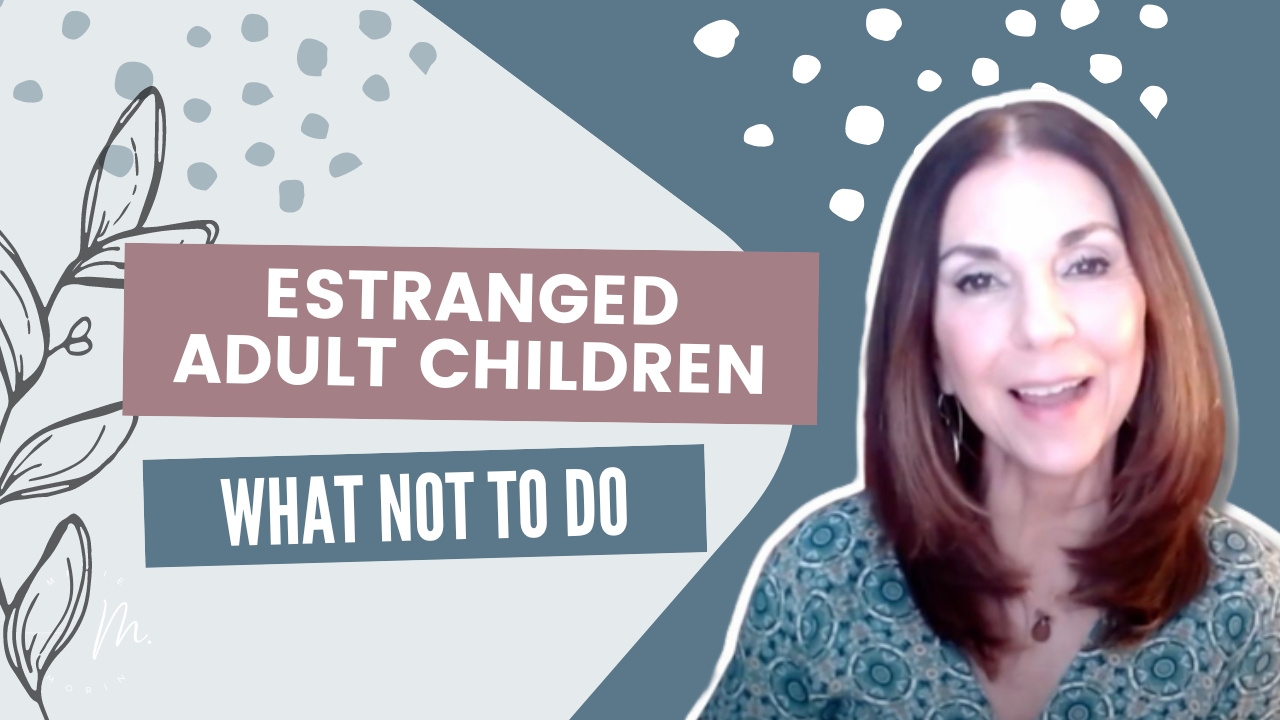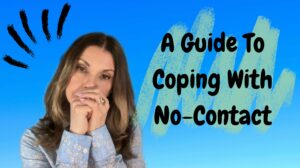Estrangement from adult children is one of the most challenging conditions a parent can endure.
When kids cut ties, it’s heartbreaking. Parents struggle to figure out what went wrong and hope to reconcile as quickly as possible. How should we deal with our adult child’s decision to distance? This article discusses Estranged Adult Children and What Not To Do When Your Kids Cut Ties.
Joshua Coleman, author of the book, Rules of Estrangement Why Adult Children Cut Ties and How to Heal The Conflict, discusses five mistakes parents make. Rules of Estrangement. Coleman’s experience reconciling with his adult daughter after divorcing and clinical expertise underpins this excellent resource for estranged parents. Coleman found that parents resort to practices and beliefs counterproductive to repairing the parent-adult-child relationship.
Coleman’s Five Mistakes
- Motivate By Guilt
Many parents have sporadic contact with their adult child or are entirely cut off. In either case, the stress of the relationship status can be emotionally taxing. Unfortunately, parents who are angry, anxious, and distressed are likely to say things that harm their chances of reconciling. When parents have the opportunity to speak with their kids, it is imperative to be intentional with their comments.
Motivating by guilt is when a parent implies in some way that their adult kid is doing something wrong or failing to keep an obligation with them. They may say, “What is going on? I haven’t heard from you in three months.” The problem with comments that imply your adult child has missed the mark facilitates more distance. Remember, adult children can cut ties for many different reasons. Something is upsetting them, and being around you, for the time being, is not working for them. Guiting them gives them the impression you do not respect their choices.
- Return Fire With Fire
Parents and adult children can resort to poor communication that is rude, disrespectful, and mean. Continuing this pattern will worsen if there has been a long-standing pattern of harmful words between you and your adult child. If your adult child expresses anger towards you, do not return fire with fire. When triggered by someone’s comments, we can impulsively reply and contribute to more conflict. Returning fire with fire is a typical response when one is upset—responding calmly with intention, and a strategy is moving towards reconciliation with your adult child.
- Believing That Reconciliation Should Be Based On Fairness Instead of Thoughtful Work
Most relationships function with mutual opportunity for fairness and equal footing. In estranged parent-adult-child relationships, however, the adult child has the upper hand.
Coleman describes the dynamic that there is an unfairness in resolving estrangement as an “asymmetrical balance of power.” Recognize the power imbalance and find the strength to work within the parameters.
When our kids are still in our homes, we set the rules and may have had the final say for a while. Now your grown children require respect as adults and the freedom to decide who they choose to be around. The estrangement condition is unfair to parents. But adult children who cut ties perceive that the relationship is uncomfortable. Family members and adult children report that cutting ties is a means of self-preservation.
Parents benefit their chances for reconciliation when they intentionally and thoughtfully work to improve their communication skills, validate their adult kids, and take responsibility for their part in the estrangement.
- Thinking That Reconciling Will Happen Quickly
You may experience a lot of anxiety about what has happened in your relationship with your adult child. Grief can come in waves, with feelings of sadness, anger, denial, and depression. You’re not alone; this is common and very understandable. You, like other parents, may be very motivated to resolve the divide and get back with your adult child.
Unfortunately, the average length of estrangement is 4.5 years.
Estrangement, by nature, brings a lot of uncertainty and intense emotions that impact how you feel physically and mentally. You cannot demand when and how you might reconcile. But, you can move forward by learning to manage your emotions by doing a daily routine, breathing exercises, being mindful of your sleep patterns, nutrition, hydration, and staying socially connected.
5. Assuming That Your Kids Distant Behavior is All About You
Your kid cutting off can feel personal. It might be. Maybe there’s been a lot of conflict and problems in your relationship; perhaps you were incredibly close. Pay attention if they’ve told you things that bother them about you. But there may be more to why your adult child has cut ties with you. However, we know it is unwise to assume that their being distant is ALL ABOUT YOU. They have stressors in their personal lives, jobs, and careers, and many of their reasons do not have anything to do with you.
Estrangement and Thoughtful Work
Family estrangement and parent-adult-child estrangement are heartbreaking. In the United States, twenty-seven percent of individuals are estranged from one or more family members.
As parents try to discover what went wrong, they may wonder what to do next. Stress impacts our thinking and makes it harder to make thoughtful plans. Parents benefit by considering how to manage this confounding condition. This article discusses Estranged Adult Children and What Not To Do








